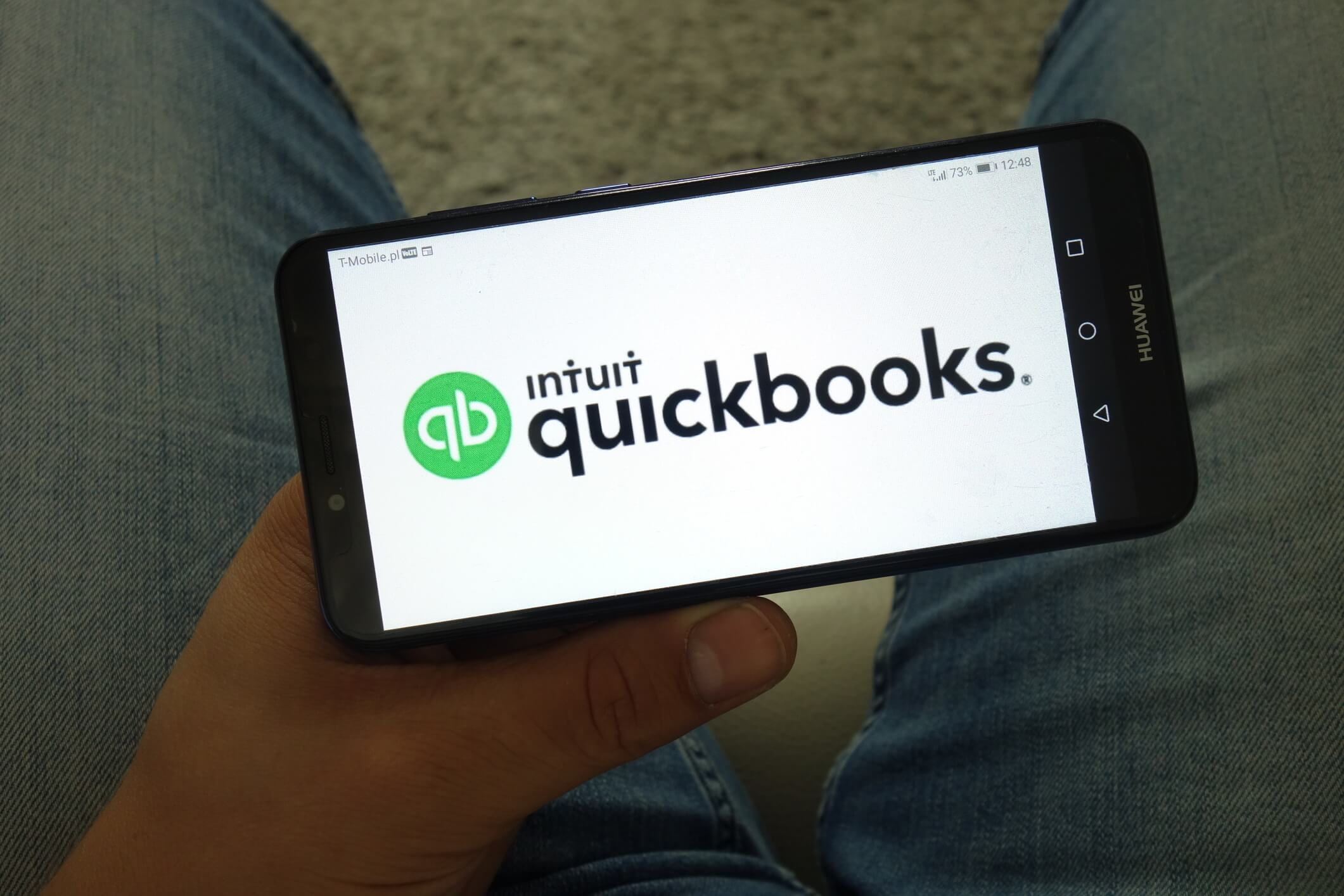Payroll management is a critical aspect of any business, and contractors are no exception. Contractors often work on a project basis, with varying payment terms and schedules. Managing payroll for contractors can be complex and time-consuming, especially when dealing with multiple projects and subcontractors. This is where payroll software for contractors comes in.
Payroll software is designed to streamline and automate the payroll process, making it easier for contractors to manage their finances and ensure accurate and timely payments to their employees and subcontractors. With the right payroll software, contractors can save time, reduce errors, and improve overall efficiency in their payroll operations.
Key Features to Look for in Payroll Software for contractors
When selecting payroll software for contractors, it is essential to consider the specific needs and requirements of the industry. Contractors often have unique payroll needs, such as managing multiple projects, tracking labor costs, and handling subcontractor payments. Here are some key features to look for in payroll software for contractors:
- Project-based payroll management: Contractors work on various projects simultaneously, each with its own payroll requirements. The software should allow contractors to set up and manage payroll for each project separately, ensuring accurate tracking of labor costs and project expenses.
- Subcontractor management: Contractors often hire subcontractors to complete specific tasks or projects. The software should have features to manage subcontractor payments, including tracking hours worked, calculating payments, and generating 1099 forms.
- Time and attendance tracking: Accurate time and attendance tracking is crucial for contractors to calculate employee wages and project costs. The software should have robust time tracking capabilities, including the ability to track hours worked, overtime, and paid time off.
- Compliance with tax regulations: Payroll software should comply with tax regulations specific to contractors, such as handling prevailing wage rates, certified payroll reporting, and tax deductions for subcontractor payments.
- Integration with accounting software: Contractors often use accounting software to manage their finances. The payroll software should seamlessly integrate with popular accounting software, allowing for easy transfer of payroll data and financial reporting.
Top Payroll Software for Contractors in 2024: A Comprehensive Overview
In 2024, several payroll software options cater specifically to the needs of contractors. Let’s take a closer look at the top five payroll software options for contractors, along with their pros and cons.
Gusto

Gusto is a popular choice among contractors for its user-friendly interface and comprehensive payroll features. With Gusto, contractors can automate their payroll processes, including calculating and filing taxes, generating pay stubs, and managing employee benefits. One of the standout features of Gusto is its ability to integrate with various accounting software, such as QuickBooks and Xero, making it seamless for contractors to sync their financial data. Additionally, Gusto offers a mobile app, allowing contractors to manage their payroll on the go.
Pros of Gusto for Contractors’ Payroll Management
- User-friendly interface: Gusto’s intuitive design makes it easy for contractors to navigate and manage their payroll processes without the need for extensive training.
- Automated tax calculations and filings: Gusto takes the hassle out of tax compliance by automatically calculating and filing payroll taxes, saving contractors time and reducing the risk of errors.
- Integration with accounting software: Contractors can seamlessly sync their payroll data with popular accounting software, streamlining their financial management processes.
- Employee self-service portal: Gusto provides employees with access to their pay stubs, tax forms, and other important documents, reducing the administrative burden on contractors.
- Robust reporting capabilities: Contractors can generate detailed reports on payroll expenses, tax liabilities, and employee hours, providing valuable insights for financial planning and analysis.
Cons of Gusto for Contractors’ Payroll Management
- Limited customization options: Some contractors may find the customization options in Gusto to be lacking, especially when it comes to tailoring the software to their specific business needs.
- Pricing structure: While Gusto offers competitive pricing, some contractors may find the cost to be higher compared to other payroll software options, especially for larger teams.
- Limited international support: Gusto primarily caters to U.S.-based contractors, which may not be suitable for those operating internationally.
QuickBooks Payroll

QuickBooks Payroll is a widely recognized name in the accounting and payroll software industry. Known for its robust features and seamless integration with QuickBooks accounting software, QuickBooks Payroll offers contractors a comprehensive solution for managing their payroll processes. With QuickBooks Payroll, contractors can easily track employee hours, calculate payroll taxes, and generate paychecks. The software also provides tools for managing contractor payments, including issuing 1099 forms.
Pros of QuickBooks Payroll for Contractors’ Payroll Management:
- Integration with QuickBooks accounting software: QuickBooks Payroll seamlessly integrates with QuickBooks, allowing contractors to sync their payroll data with their accounting records, ensuring accurate financial reporting.
- Time tracking and employee management: Contractors can easily track employee hours, manage time-off requests, and generate detailed reports on employee attendance.
- Automated tax calculations and filings: QuickBooks Payroll automatically calculates and files payroll taxes, reducing the risk of errors and ensuring compliance with tax regulations.
- Customizable pay schedules: Contractors can set up custom pay schedules to accommodate different payment frequencies, such as weekly, bi-weekly, or monthly.
- Mobile app: QuickBooks Payroll offers a mobile app, enabling contractors to manage their payroll on the go, approve timesheets, and view employee information.
Cons of QuickBooks Payroll for Contractors’ Payroll Management:
- Steep learning curve: QuickBooks Payroll can be complex for contractors who are not familiar with accounting software, requiring some time and effort to learn and navigate.
- Additional cost for QuickBooks integration: While QuickBooks Payroll integrates seamlessly with QuickBooks accounting software, contractors need to consider the additional cost of purchasing both software solutions.
- Limited customer support: Some contractors have reported challenges in accessing timely and responsive customer support from QuickBooks, which can be frustrating when facing payroll-related issues.
ADP Workforce Now

ADP Workforce Now is a comprehensive payroll software solution that caters to contractors of all sizes. With its robust features and scalability, ADP Workforce Now offers contractors the flexibility to manage their payroll processes efficiently. The software provides tools for time and attendance tracking, tax calculations and filings, and employee self-service. ADP Workforce Now also offers additional HR features, such as benefits administration and talent management, making it a comprehensive solution for contractors’ workforce management needs.
Pros of ADP Workforce Now for Contractors’ Payroll Management:
- Scalability: ADP Workforce Now can accommodate contractors of all sizes, from small businesses to large enterprises, making it a suitable choice for contractors with plans for growth.
- Comprehensive HR features: In addition to payroll management, ADP Workforce Now offers a range of HR features, including benefits administration, talent management, and compliance tracking.
- Time and attendance tracking: Contractors can easily track employee hours, manage time-off requests, and generate reports on attendance, providing valuable insights for workforce management.
- Tax compliance: ADP Workforce Now automatically calculates and files payroll taxes, ensuring contractors remain compliant with tax regulations.
- Employee self-service portal: ADP Workforce Now provides employees with access to their pay stubs, tax forms, and benefits information, reducing administrative tasks for contractors.
Cons of ADP Workforce Now for Contractors’ Payroll Management:
- Cost: ADP Workforce Now is known for its robust features, but it comes with a higher price tag compared to other payroll software options, which may not be suitable for contractors with limited budgets.
- Complexity: Some contractors have reported that ADP Workforce Now can be complex to set up and navigate, requiring additional training and support.
- Customer support: While ADP offers customer support, some contractors have reported challenges in accessing timely and responsive assistance, which can be frustrating when facing payroll-related issues.
Paychex Flex
Paychex Flex is a payroll software solution that offers tailored services for contractors, providing advanced reporting capabilities and customizable features. With Paychex Flex, contractors can automate their payroll processes, including tax calculations and filings, direct deposit, and employee self-service. The software also offers robust reporting tools, allowing contractors to generate detailed reports on payroll expenses, tax liabilities, and employee hours.
Pros of Paychex Flex for Contractors’ Payroll Management:
- Customizable features: Paychex Flex offers contractors the flexibility to customize their payroll processes to suit their specific business needs, ensuring a tailored solution.
- Advanced reporting capabilities: Contractors can generate detailed reports on payroll expenses, tax liabilities, and employee hours, providing valuable insights for financial planning and analysis.
- Tax compliance: Paychex Flex automatically calculates and files payroll taxes, reducing the risk of errors and ensuring contractors remain compliant with tax regulations.
- Employee self-service portal: Paychex Flex provides employees with access to their pay stubs, tax forms, and benefits information, reducing administrative tasks for contractors.
- Dedicated customer support: Paychex Flex offers dedicated customer support, ensuring contractors have access to timely assistance when needed.
Cons of Paychex Flex for Contractors’ Payroll Management:
- Pricing structure: Paychex Flex’s pricing structure can be complex, with additional costs for certain features and services, which may not be suitable for contractors with limited budgets.
- Learning curve: Some contractors have reported that Paychex Flex can be complex to set up and navigate, requiring additional training and support.
- Limited integration options: Paychex Flex may have limited integration options with other accounting or HR software, which can be a drawback for contractors who rely on multiple systems for their business operations.
Zoho Payroll
Zoho Payroll is an affordable and user-friendly payroll software solution that caters to the needs of contractors. With its intuitive interface and comprehensive features, Zoho Payroll offers contractors a streamlined solution for managing their payroll processes. The software provides tools for calculating and filing taxes, generating pay stubs, and managing employee benefits. Zoho Payroll also offers integration with other Zoho applications, such as Zoho Books and Zoho People, making it a seamless solution for contractors who use multiple Zoho products.
Pros of Zoho Payroll for Contractors’ Payroll Management:
- Affordability: Zoho Payroll offers competitive pricing, making it an attractive option for contractors with limited budgets.
- User-friendly interface: Zoho Payroll’s intuitive design makes it easy for contractors to navigate and manage their payroll processes without the need for extensive training.
- Automated tax calculations and filings: Zoho Payroll automatically calculates and files payroll taxes, saving contractors time and reducing the risk of errors.
- Integration with other Zoho applications: Contractors who use other Zoho applications, such as Zoho Books or Zoho People, can seamlessly sync their payroll data, streamlining their business operations.
- Employee self-service portal: Zoho Payroll provides employees with access to their pay stubs, tax forms, and benefits information, reducing administrative tasks for contractors.
Cons of Zoho Payroll for Contractors’ Payroll Management:
- Limited customization options: Some contractors may find the customization options in Zoho Payroll to be lacking, especially when it comes to tailoring the software to their specific business needs.
- Limited integration options: While Zoho Payroll integrates well with other Zoho applications, it may have limited integration options with third-party accounting or HR software, which can be a drawback for contractors who rely on multiple systems for their business operations.
- Limited customer support: Some contractors have reported challenges in accessing timely and responsive customer support from Zoho, which can be frustrating when facing payroll-related issues.
Factors to Consider When Selecting Payroll Software for Contractors
When selecting the best payroll software for contractors in 2024, several factors should be considered:
- Specific needs and requirements: Contractors should assess their unique payroll needs and prioritize features that align with their business operations.
- Scalability: Contractors should choose software that can accommodate their growing business needs and handle an increasing number of projects and employees.
- Integration capabilities: Contractors should consider the software’s ability to integrate with their existing accounting software and other business systems.
- User-friendliness: Contractors should opt for software that is intuitive and easy to use, minimizing the learning curve for themselves and their employees.
- Customer support: Contractors should evaluate the level of customer support provided by the software vendor, ensuring prompt assistance in case of any issues or questions.
Conclusion
In conclusion, choosing the best payroll software for contractors is crucial for streamlining payroll processes, ensuring compliance with tax regulations, and providing valuable insights for financial planning and analysis. Gusto, QuickBooks Payroll, ADP Workforce Now, Paychex Flex, and Zoho Payroll are among the top payroll software options available to contractors. Each software offers unique features, pros, and cons, allowing contractors to choose the solution that best suits their specific business needs and budget. By considering the top features mentioned in this article, contractors can make an informed decision and leverage the power of payroll software to effectively manage their payroll processes in 2024 and beyond.
